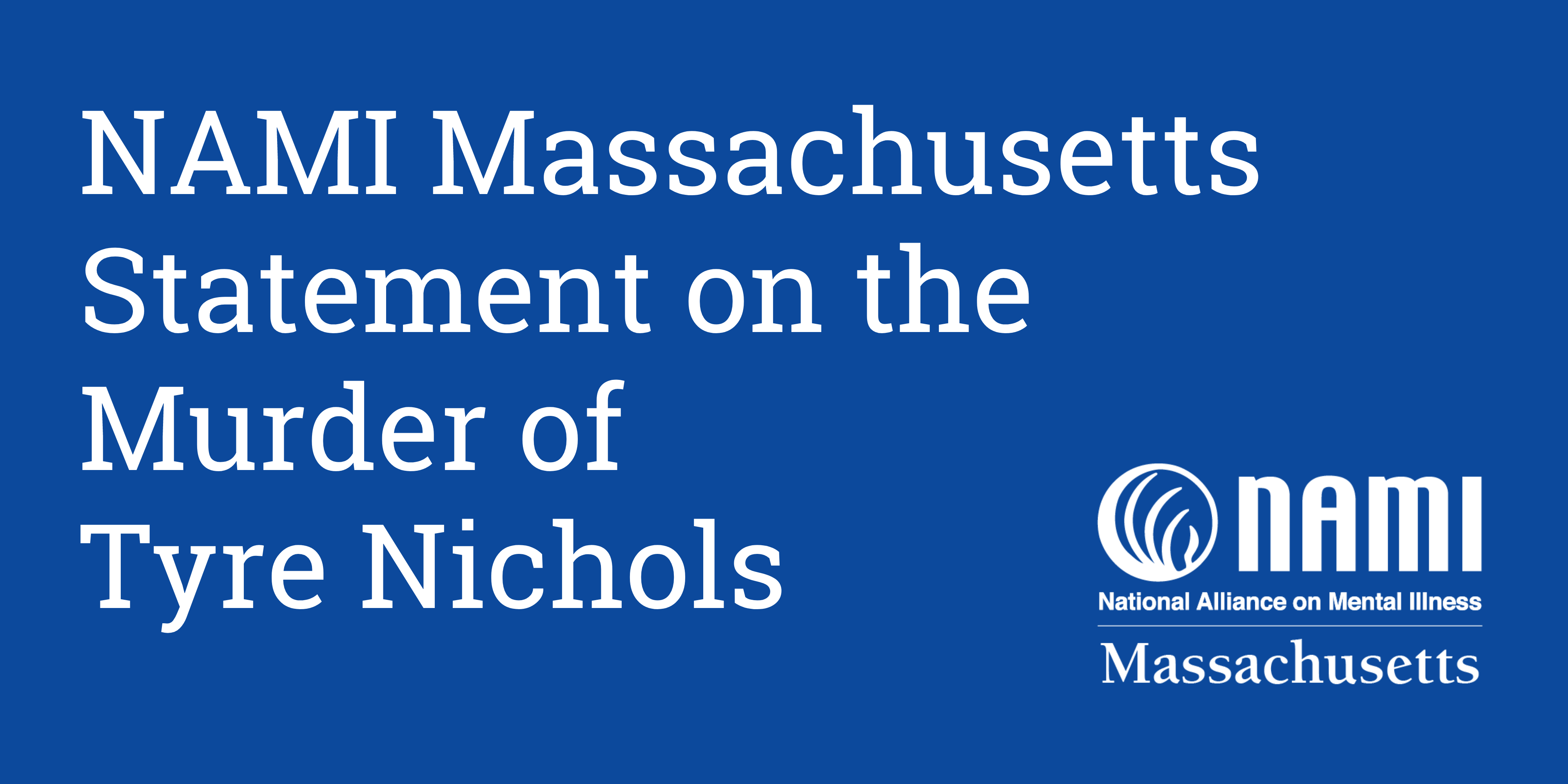On January 7th, 2023, Tyre Nichols was pulled over for a traffic stop by Memphis police and was attacked and beaten. He died three days later. In the weeks that followed, the senseless, merciless murder of Tyre Nichols was shared by news outlets across the country. At NAMI Mass, we believe incidences of traumatization and oppression directly shape a person’s health, and we strive to create societal conditions that promote health, advance justice, and prevent physical and psychological distress. Undoubtedly, the viewing of the graphic, horrific, and trauma-inducing video of Tyre Nichols’ attack can adversely impact the physical and psychological well-being of those who view it.
We know that viewing repeated incidences of violence toward Black Americans can have traumatizing effects on those watching it—especially Black Americans. The beating of Tyre Nichols itself is a horrifying, violent act that requires wide-spread amplification through a high level of compassion and care. Change is long overdue. However, the continued circulation of the disturbing body cam footage exploiting the murder of a Black man and desensitizing viewers to Black pain needs to end. In order to promote health, advance justice, and prevent physical and psychological distress, we need to make sure we are not further retraumatizing members of the Black community by showcasing the violation of Black bodies in excessive amounts.
In further response to Tyre Nichols death, NAMI Mass’ Executive Director Dr. Myisha Rodrigues stated:
“The murder of Tyre Nichols is traumatizing. The sharing of the body cam footage of his attack is also extremely traumatizing. As stated by Tyre Nichols, ‘I’m just trying to go home.’ Black men and women just want to get home. We just want to see our children, partners, cousins, friends, and family members exist freely. In support of Black Americans, we are asking the media to honor Tyre Nichols by condemning his senseless murder and that they engage in trauma- informed reporting to prevent further physical and psychological distress. We also urge our federal policymakers to address the continued disregard for Black lives with real, substantial change.”
At NAMI Mass, we honor the wide range of cultural and community experiences shaped by people’s intersectional and social identities that influence how people understand mental health. We need to look toward the Black community with understanding and support. The constant unwanted or unintentional viewing of the attack on Tyre Nichols could lead to increased levels of anxiety, depression, or trauma. When sharing these images or videos, we need to ensure we limit harm by providing warnings, opt-out options, and follow-up with resources and support groups that provide a space to discuss and grieve these violent attacks on the Black community.
To promote healing during these traumatic events, we encourage turning to Black authors, artists, comedians, and musicians to find home in Black community and culture. For those who wish not to accidentally view the body cam footage, Kirstin L. Cheers, Director of Communication at BRIDGES USA in Memphis, created this guide on how to limit the viewing of sensitive content on social media. For virtual support groups centered on Black healing, please check out –
- Man2Man, a safe peer-led support group for BIPOC men to connect and support one another hosted weekly by DeeDee’s Cry.
- Heal With Him, a group open to women to enhance women’s health, wellness, relationships and quality of life hosted virtually by Black Men Heal
- Kings Corner, a group for men on different topics applicable to men’s mental health issues or struggles with a different qualified host each week hosted weekly by Black Men Heal
- NAMI Mass’ website provides a list of free peer support groups facilitated by and for members of the BIPOC community who have personal experience with the mental health system, trauma, or getting support themselves.





